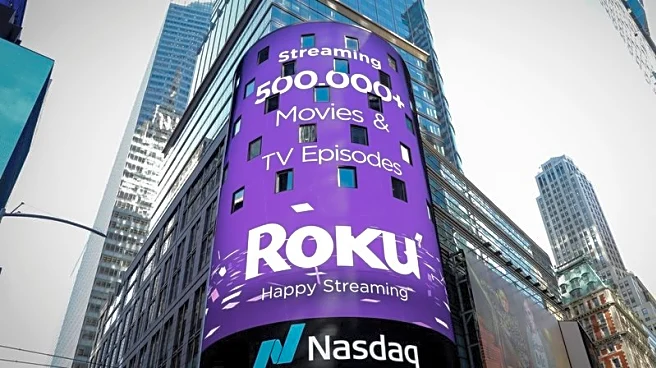What's Happening?
The U.S. economy has managed to avoid a recession despite high interest rates and global trade tensions, largely due to significant investments in artificial intelligence. BNP Paribas Chief U.S. Economist James Egelhof attributes the economic resilience
to AI-driven investments in data centers and computer chips, which have contributed to GDP growth. Bank of America estimates that AI-related spending added 1.3% to second-quarter GDP growth. This AI boom has led to increased hiring and investment by companies, providing the Federal Reserve with more flexibility in managing interest rates.
Why It's Important?
The AI-driven economic growth highlights the transformative impact of technology on the U.S. economy. By boosting productivity and growth, AI investments are helping businesses remain optimistic and continue investing, even in uncertain times. This shift is altering traditional economic responses to interest rate changes, as companies leverage rising stock prices for funding rather than debt. The focus on AI underscores its role in shaping future economic policies and strategies, with major tech companies leading the charge in capital spending.
Beyond the Headlines
The AI boom is not only affecting economic growth but also changing the dynamics of corporate spending and investment strategies. As companies prioritize AI, the traditional link between interest rates and corporate spending is evolving, potentially leading to new economic models. This shift may influence future policy decisions and investment strategies, as stakeholders adapt to the changing landscape. The emphasis on AI investments reflects broader trends in technology adoption and innovation, which are crucial for long-term economic resilience.

















